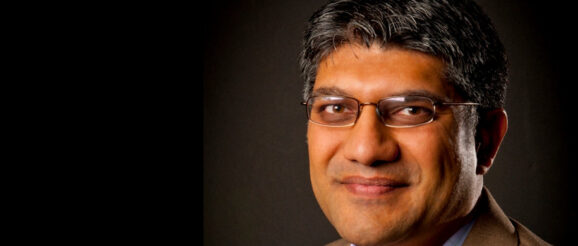Jigar Shah on the solar industry: ‘We embrace innovation because it is in our blood’


“We are being looked at by everyone from prominent political campaigns to elected officials in our towns and counties to provide the economic development needed for the nation’s recovery from Covid.”
The following article is adapted from the keynote Jigar Shah delivered at the Aurora Solar Virtual Solar Summit on July 23.
The solar industry feels like it is moving so fast, we don’t always make time to think about what we have accomplished or where we’re going or the values that continue to propel us forward. But now – at a time of such enormous change and challenge – we need that kind of clear view to keep us grounded.
In the United States today, more than 2 million residential customers are enjoying the benefits of solar power – just one measure of how mainstream we have become. Clean energy has accounted for more than 75% of the new electricity generation added to the U.S. grid every year since 2015.
Equally essential, around the world, more people are gaining access to electricity from solar microgrids than from grid extensions. Solar is now the lowest-cost provider of energy in most regions worldwide. All these achievements have been made possible by the people in our industry — our values, leadership and training – as we strive to ensure solar is installed properly, safely and cost effectively for our customers.
Solar is now one of the largest, most trusted industries in the country. When people think about installing an electric vehicle charger, they think about the solar energy industry. When they think about upgrading their homes with energy efficiency and solar at the same time, they think about our industry. Grid reliability issues are increasingly making battery storage a standard feature for homeowners going solar because they are realizing that batteries are far more cost-effective than a diesel engine in the backyard.
But now we have another big goal ahead of us. Tackling climate change means not only will 100% of all new electricity in this country need to come from clean energy sources; to stave off the worst impacts of climate change, we must get that number to 200%. To accelerate the closing of coal plants and the most inefficient natural gas plants, the solar and wind industries must triple their current run rate.
Deployment-led innovation
How do we get there? First, connecting with our communities — we have to start talking and maybe even bragging about what we do. Our city council and school board members, our mayors and other elected officials all need to know the local solar companies in the same way they know the top roofers, plumbers or electricians in their regions.
Here’s another point, people constantly talk about deployment versus innovation. But the solar industry is the poster child for what I call deployment-led innovation. For example, today’s design technology lets us size up a system and spec it out without necessarily visiting the house, which reduces soft costs. The more we deploy, the more we learn and the more problems we can solve.
We are just as innovative today as we were ten years ago. Whether it’s lithium-ion batteries, electric vehicles, energy efficiency or green hydrogen, the beauty of our industry is that we are not afraid of innovation or see it as disruptive.
We embrace innovation because it is in our blood. Most of the people in our industry look forward to learning about new technologies or best practices and bringing them back to their companies.
Solar’s role in the broader economy
Keeping that forward momentum also means we need to think strategically about our role in the broader economy. In the 1990s, the industry narrative was always us versus them — solar versus the electric utilities, solar versus the oil companies. Today, utilities are some of the largest owners of solar power in the country, and oil companies, some of the largest investors.
Amid all these changes, we must stay focused on our values and belief structure, which center on the empowerment of the consumer. Many of us have done quite well financially, but our goal is not to make the most money for ourselves; it is to do right by our customers. In developing countries, we are, for the first time, providing people with electricity for reliable lighting and mobile phone charging. In the U.S., we are helping consumers — especially those on fixed incomes — protect themselves from electricity prices that in some regions are rising at three times the level of inflation.
Extending that commitment further, it is critical to recognize we are being looked at by everyone from prominent political campaigns to elected officials in our towns and counties to provide the economic development needed for the nation’s recovery from Covid. After the financial crisis of 2008, clean energy industries created about one out of every 10 blue collar jobs through 2016. Today the solar industry has over 200,000 people who are being deemed essential workers — our work is essential — because we’re moving the country forward.
We take that responsibility seriously. We are taking risks; our workers are taking risks, and we’re doing the best we can to make sure everyone stays safe. But the pandemic is only one part of a much larger challenge. In the face of hurricane season, wildfires, aging grid infrastructure, and extreme weather as climate change intensifies, we are continually on the front lines.
Our values are what got us here, and even as more money and responsibility come into our industry, these values must be our foundation and guide our way forward. We have so much more to do.
***
Jigar Shah is president and cofounder of Generate Capital.
